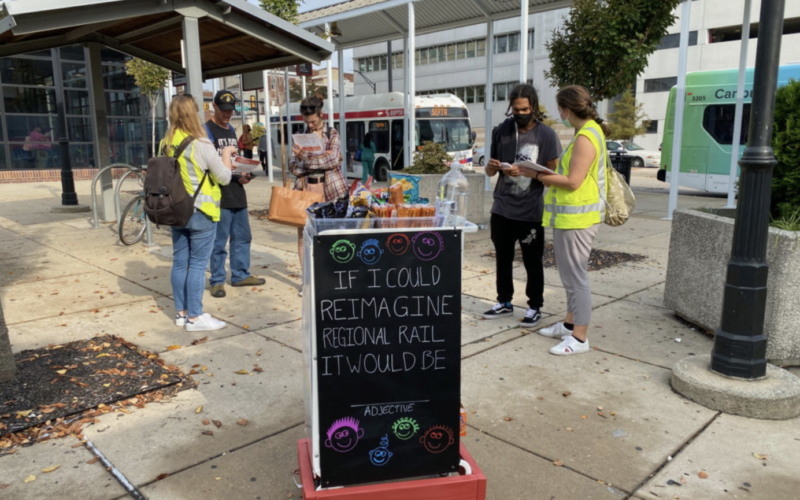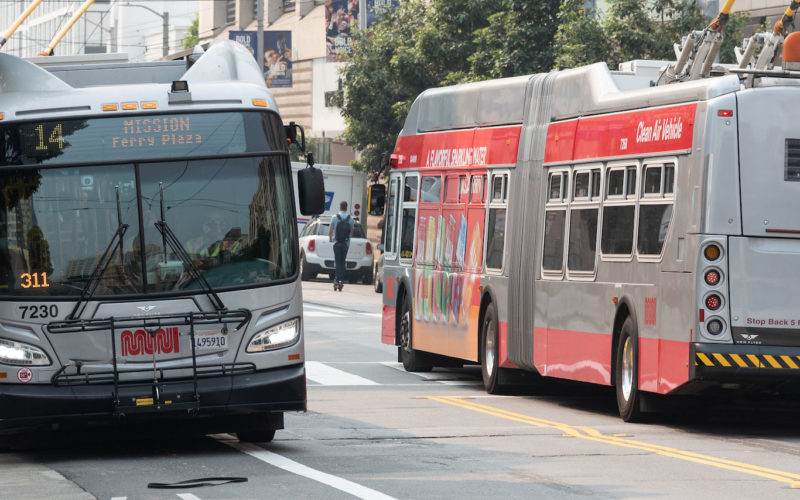
Photo Credit: Metro Transit
In cities and regions across the country, transit agencies are struggling to fully deliver on their mission—and in many cases have trouble just getting service out the door. The reasons for these challenges are numerous, but many of them fundamentally come down to a lack of people power. Agencies simply do not have the workforce they need to get the current job done or plan for the future. Whereas transit jobs were once highly sought after, they are now failing to attract and retain the talent needed to solve big 21st-century problems. At many agencies, the number of retirements and resignations are outpacing the number of new people they can bring in the door. To compound the problem, agencies are also anticipating another big wave of retirements within the next seven years.
TransitCenter’s new report, “People First,” examines the current challenges facing public sector human resources that limit hiring and retention, and outlines potential solutions to rethink this critical agency function.
The report finds that the challenges facing the transit workforce are structural in nature. The pandemic exacerbated but did not cause them. Transit agencies have not fully adjusted to decades-in-the-making changes in the labor market or workers’ expectations. It remains difficult to get hired at a transit agency and harder still to stay, given the bureaucracy employees are required to navigate, the burnout and stress associated with working in a 24/7 operation, and the low starting pay and limited investment in training and professional development.
To make transit agencies workplaces of the future, “People First” makes the case that agencies must transform Human Resources (HR) into strategic functions that can proactively address future workforce needs, prioritize professional development and succession management, and build a positive workplace culture. HR departments within agencies are often siloed and under-resourced, often utilized only after a crisis occurs. Instead, HR departments must be staffed, resourced, and considered strategic thought partners at the leadership level to participate in critical conversations about current and future organizational needs. Transit leadership will need to partner with human resources to develop short, medium, and long-term plans to grow individual and agency capacity.
The report highlights four areas that need to be reimagined in order for agencies to reverse worrying workforce trends: where human resources sits within an agency, hiring practices, retention practices, and workplace culture.
“People First” recommends major changes to hiring policies and procedures in order to make jobs in transit more attractive to applicants, as well as to make it easier to get hired. Human resources staff will have to rewrite job descriptions in plain language that better explains their benefits. They will have to go through existing descriptions and strike unnecessary requirements and process steps. Additionally, they will have to conduct compensation studies in order to ensure the jobs they’re offering are maximally competitive while maintaining pay equity with current employees.
This report also recommends that agencies invest in their workforce to increase retention and retain the knowledge that will be lost with retirements. Agencies typically have training programs for entry-level jobs like bus operators and sometimes have leadership training for executives. For existing employees, there are often fewer training opportunities. Agencies should be investing substantially in training throughout the organization at all levels. Additionally, every transit agency employee needs to be given clear information about how to advance, what skills are needed, and how they can obtain those skills.
High stress and burnout is a leading cause of transit agency departures. The nature of 24/7 transit operations can create a crisis-driven workplace culture that leaves little opportunity for rest, reflection, and growth. To become workplaces of the future, transit agencies will have to change their culture to be more equitable, supportive, and conducive to employee wellbeing. With more dedicated staff, HR departments can create roles specifically dedicated to developing a psychologically safe and balanced workplace culture.
The problems plaguing the transit workforce are deep and longstanding. But the good news is that transit is a more exciting place to work than it has ever been, with huge opportunities for public-spirited people to make an impact. There is also a great deal of passion for the mission among the people we interviewed for this report. Many of the people who have left transit can’t wait to get back. And there are so many people who show up to work at transit agencies every single day and perform herculean feats to ensure that the buses will show up at our stops. We owe it to them to make their jobs easier. There is no just and sustainable future without great transit, and there is no great transit without people.
Read the full report!
 A Transit Revolution in Philadelphia?
A Transit Revolution in Philadelphia?
The Southeastern Pennsylvania Transportation Authority (SEPTA) has been working throughout the pandemic on several system-wide planning initiatives that have the potential to transform transit service in and around the city of Philadelphia.
Read More What’s Going on With Transit Service at the Seven Highest Ridership U.S. Cities? SF Edition
What’s Going on With Transit Service at the Seven Highest Ridership U.S. Cities? SF Edition
As of March 2022, SFMTA was operating 88% of pre-pandemic service and added back even more service in July.
Read More